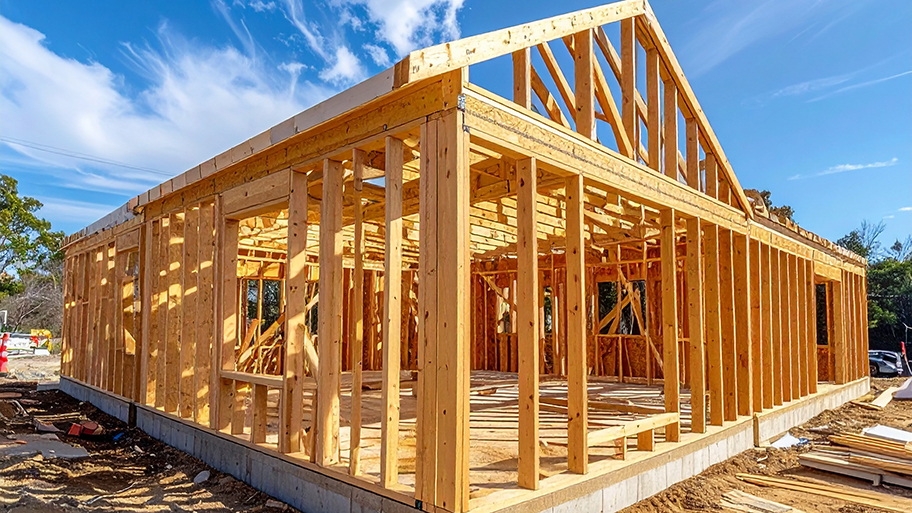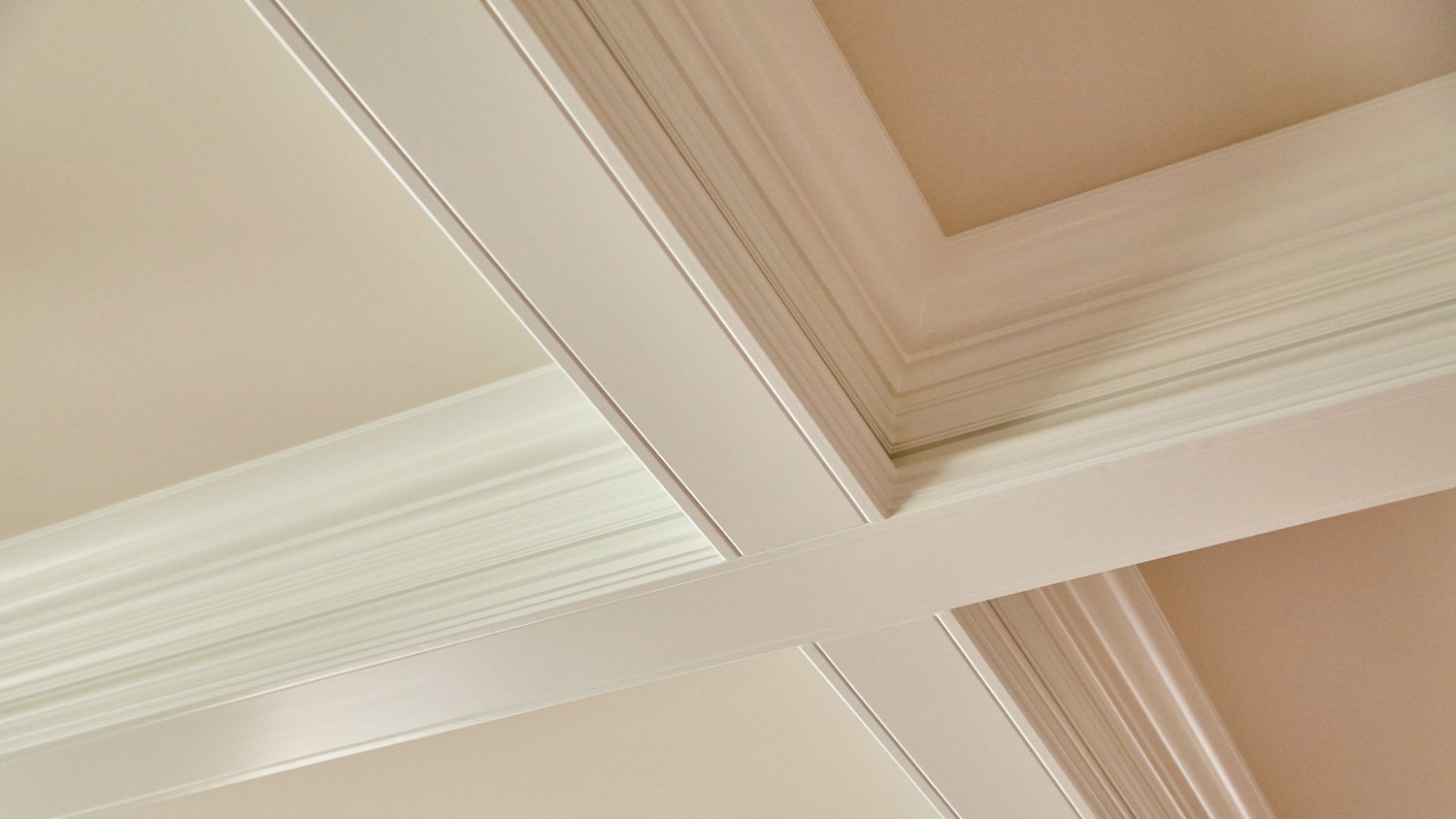
The cost to frame a house can vary depending on the size of your home, the structure you’re building, and your materials. Keep reading to learn how much framing your house might cost.
General contractors charge $50 to $150 per hour on average. Your rate depends on project size, location, and contractor experience.


How much general contractors charge per hour varies based on contractor experience, project size, regional pricing, and the complexity of the work involved.
General contractors manage home renovation, repair, and construction tasks, charging by the hour for their expertise and project oversight.
Expect to pay 10% to 20% of your project's costs for your general contractor's total fee.
Bundling related services or add-ons, such as project management or cleanup, can help lower your overall hourly costs.
Choosing the right contractor can improve your home’s value and ensure all work meets local codes and safety standards.
This article was created using automation technology and thoroughly fact-checked and edited by an Angi Editor in accordance with our AI policy.
How much do general contractors charge per hour? Homeowners pay between $50 and $150 per hour, with rates ranging from $35 to $200, depending on the contractor’s experience, project complexity, and location. Knowing what influences hourly rates allows you to estimate labor costs, compare quotes, and make confident decisions for your home projects.

Let’s break down the main cost factors that influence how much general contractors charge per hour. Each element—from contractor type to project scope—can impact the final price you pay.
The type of general contractor you hire affects hourly rates. Residential contractors usually work on homes, while commercial contractors handle larger buildings. Specialty contractors focus on areas like kitchens or bathrooms. The project type—such as remodels, new builds, or repairs—also changes the hourly rate. Subcontracted specialists, like electricians or plumbers, often charge higher rates than general contractors managing the overall job.
| Contractor Type | Project Examples | Average Contractor Cost |
|---|---|---|
| Residential | Home remodels, additions | $2,000–$90,000 |
| Specialty | Bathroom, kitchen renovations | $250–$15,000 |
| General oversight | Project management, coordination | $3,000–$50,000 |
| Subcontracted specialist | Plumbing, electrical, HVAC | $50 per hour |
The size or scope of your project directly affects hourly rates. Small repairs may have a higher hourly rate due to minimum charges, while full remodels or large builds might result in lower rates per hour but higher total labor costs. Some contractors have minimum hour requirements or set project minimums, so be sure to ask before work begins.
| Project Scope | Estimated Hours | Hourly Cost |
|---|---|---|
| Small repair | 2–4 | $100–$800 |
| Medium remodel | 20–60 | $1,000–$9,000 |
| Full renovation | 100–300 | $5,000–$45,000 |
Be very careful if you enter into an agreement for an hourly rate. Does the clock start when the contractor begins driving to your house? Does every phone call count as a minimum of 15 minutes or more? Can the contractor charge you for time spent researching prices and techniques online? If you do an hourly rate, be sure to set a cap, such as ‘not to exceed 20 hours per week for the duration of the job’ or something similar.
Labor costs are a significant part of what you’ll pay. General contractors, subcontractors, and laborers all have different hourly rates. More experienced, licensed, or reputable contractors tend to charge more. Rates can also vary by region, with urban and high-demand markets costing more. Expect premium rates for overtime, weekends, or emergency work.
Most general contractors don't charge hourly rates. Instead, their hourly rate represents their overall fee, which is 10% to 20% of the project's cost, distributed across labor hours. Depending on the project's terms, subcontractor hourly or daily rates are either built into the price or added on to your bill as needed. These rates depend on the type of subcontractor, such as HVAC specialist, plumber, or handyperson.
Preparation work, such as site clearing, demolition, or setup, can add to your total billable hours. These tasks are often billed at the contractor’s standard hourly rate, especially if they require skilled labor. Prep work like removing old fixtures, clearing debris, or setting up protective barriers helps ensure a smooth project but increases the total hours needed.
There are several other factors that may impact how much general contractors charge per hour:
Permit fees: Contractors may handle permits for you, passing on the cost or including it in their rate.
Post-construction cleanup: Some contractors include this in their hourly rate, while others charge extra.
System installations: Electrical, plumbing, and HVAC work often involves subcontractors with higher hourly charges.
Custom add-ons: Custom work, intricate finishes, or specialty requests typically increase hourly costs.
Unforeseen issues: Hidden damage or structural problems can result in additional billable hours and higher costs.
Ongoing costs are another important consideration when hiring a general contractor. These can include maintenance, operating expenses, repairs, and insurance-related fees.
After your project wraps up, you may need maintenance visits for touch-ups, warranty work, or minor repairs. General contractors often charge their standard hourly rate for these visits. Maintenance is usually less frequent—perhaps once or twice a year—unless you have a service contract.
Some operating costs, like project management or site supervision, may be billed hourly or included in the overall hourly rate. Contractors often charge for administrative time, coordination with suppliers or subcontractors, and travel. These costs ensure your project runs smoothly and stays on schedule.
General contractors handle a wide range of repairs, from fixing drywall to addressing structural issues. Hourly rates for repairs are usually in line with standard charges, but emergency or after-hours repairs can be significantly higher. For scheduled repairs, rates stay within the $50 to $150 per hour range, while emergency calls may run as high as $200 per hour.
General contractors carry liability insurance and workers’ compensation, which protect you and their workers. The cost of insurance is often factored into their hourly rate. Always verify your contractor’s insurance coverage before work begins. While insurance adds to overall costs, it’s essential for your protection and peace of mind.
Comparing DIY project costs to hiring a general contractor by the hour can help you decide what’s best for your situation. DIY projects save on labor costs, but you’ll need to buy or rent tools, purchase materials, and dedicate significant time to learning and completing the work. Professional general contractors bring expertise and access to subcontractors, and they handle permits and inspections.
DIY may seem less expensive upfront, but hidden costs—like tool rentals, mistakes, or code violations—can add up quickly. Complex projects, electrical or plumbing work, and anything requiring permits are best left to licensed pros. For large-scale renovations or structural changes, hiring a contractor ensures safety, compliance, and long-term value.
DIY is best for simple tasks if you have the skills and time. For most major projects, hiring a general contractor is the safest and most reliable choice.
Certain add-ons can increase how much general contractors charge per hour. Here are some common examples:
Project management or supervision fees: $45 per hour
Architectural consultation: $100–$500 per hour
Specialty subcontractor: $80–$200 per hour
Custom finishes or upgrades: $40–$100 per hour
Expedited or rush project fees: 10%–25% premium on standard hourly rates
Always clarify which add-ons are included in your contractor’s estimate and which are billed separately.
Use these cost-saving strategies to keep your project within your budget:
Get multiple general contractor quotes to compare hourly rates and total fees.
Schedule work during off-peak seasons for better rates.
Bundle multiple projects to negotiate lower hourly fees.
Provide clear project plans to minimize change orders.
Source your own materials if allowed by the contractor.
Limit project scope to essentials to reduce billable hours.
Maintain open communication to avoid misunderstandings and delays.
Home is the most important place on earth, which is why Angi has helped more than 150 million homeowners transform their houses into homes they adore. To help homeowners with their next project, Angi provides readers with the most accurate cost data and upholds strict editorial standards. We extensively research project costs to develop the pricing data you see, so you can make the best decisions for you and your home. We rely on reputable sources, including the U.S. Bureau of Labor Statistics, academic journals, market studies, and interviews with industry experts—all to ensure our prices reflect real-world projects.
Want to help us improve our cost data? Send us a recent project quote to [email protected]. Quotes and personal information will not be shared publicly.
From average costs to expert advice, get all the answers you need to get your job done.

The cost to frame a house can vary depending on the size of your home, the structure you’re building, and your materials. Keep reading to learn how much framing your house might cost.

Looking to turn your yard into a hockey or ice skating paradise this winter? Use this backyard ice rink cost guide to see what the installation will total.

Building permits are essential. Here’s everything you need to know about building permit costs to budget accordingly for your building project.

Not sure what the difference is between coffered and tray ceilings? Learn the key distinctions in design, cost, and benefits to decide which ceiling style is best for your home.

As you ring in the new year, you may wonder: What are the top home improvement ideas of 2025? Read on for a full breakdown of in-demand projects on the horizon.

Don’t let your DIY project drain your wallet. Homeowners and professionals share tips on keeping costs down when tackling home improvement projects.